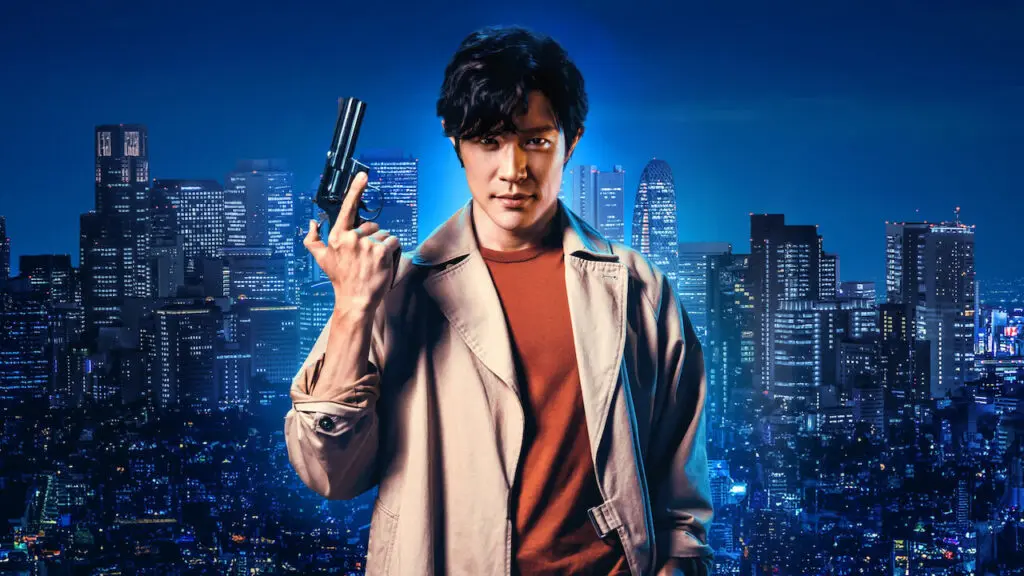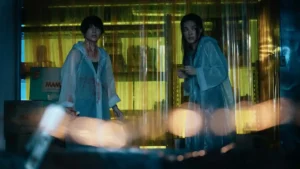Summary
Given the manga and the anime’s popularity, it’s hard to believe this is the first Japanese live-action adaptation produced. The film is a bit of a mixed bag, but not without charm.
Live-action adaptations tend to be hit-and-miss. It’s hard to convey the exaggerated and physically impossible animation elements in the real world with human actors. There’s also a fine balance between pleasing existing fans while remaining accessible enough for new viewers to enjoy. City Hunter (2024) has plenty of good qualities, but I wouldn’t call it the best introduction to the franchise’s lore.
City Hunter, the Tsukasa Hojo manga, has seen numerous adaptations since its first issue hit the shelves in 1985. The franchise includes several anime series, a few movie adaptations (including one starring Jackie Chan), and a highly popular K-Drama. But despite its origin, a Japanese-produced live-action version was missing from the roster. That’s where the 2024 Netflix release directed by Yûichi Satô comes in.
Ryo Saeba (Ryohei Suzuki) and his best friend Makimura (Masanobu Andô), a former police officer, are two Tokyo-based guns for hire who agree to help a woman find her missing sister, the cosplayer Kurumi (Asuka Hanamura). The pair find Kurumi and even rescue her from a group of thugs, but the young girl refuses to go with them and keeps running.
Later that night, Makimura is murdered by a man with superhuman strength while celebrating his sister Kaori’s birthday at a restaurant. The man who kills Makimura is only the most recent person to exhibit such extreme violent tendencies seemingly out of the blue.

City Hunter | Image via Netflix
To Ryo’s dismay, Kaori insists they work together to learn why Makimura was targeted. As they delve deeper into the investigation they uncover a conspiracy involving illegal human experiments, a mysterious evil organization, a drug known as Angel Dust, and Kurumi in the center of it all.
The fast-paced action sequences are top-notch and arguably the best parts of this movie. The fights are expertly choreographed and Suzuki is a believable action hero.
It’s impossible to fault Suzuki’s performance. The comedy may be mediocre but he adds charm to an otherwise insufferable character. Suzuki is at his best during the more serious action sequences and even during some more emotional scenes.
On the flip side, a movie needs to have a lot of blatant misogyny for me to think it’s worth mentioning in a review. But when it comes to unfunny jokes that should have died a death in some smoke-filled boardroom from the 1980s, City Hunter takes the cake. The original manga was a product of its time; this version isn’t.
When we first meet Ryo, he’s gleefully singing (yes, singing) about the “babes in bikinis” he’s stalking from a rooftop. He also repeatedly refers to their client as “Miss Sexy Melons” and makes irritating high-pitched sounds at the mere sight of a female in any state of undress.
While Ryo’s exaggerated wannabe playboy character traits are successfully played for laughs in the manga and the animes from more than 3 decades ago, they wear far too thin in a live-action adaptation. After all, the movie version of Kaori can’t exactly pull out a giant hammer every single time Ryo says or does something incredibly inappropriate (even if the iconic hammer does make an appearance).
However, despite the film’s lackluster first half, it does grow into a more enjoyable comedy action flick as the plot progresses. By the third act, City Hunter (2024) seems to have finally hit a good balance of slapstick, action, and narrative. Ryo also becomes a more toned-down version of the annoying character we meet in the opening scene.
I also discussed the City Hunter ending too, if you’d like to check it out.




